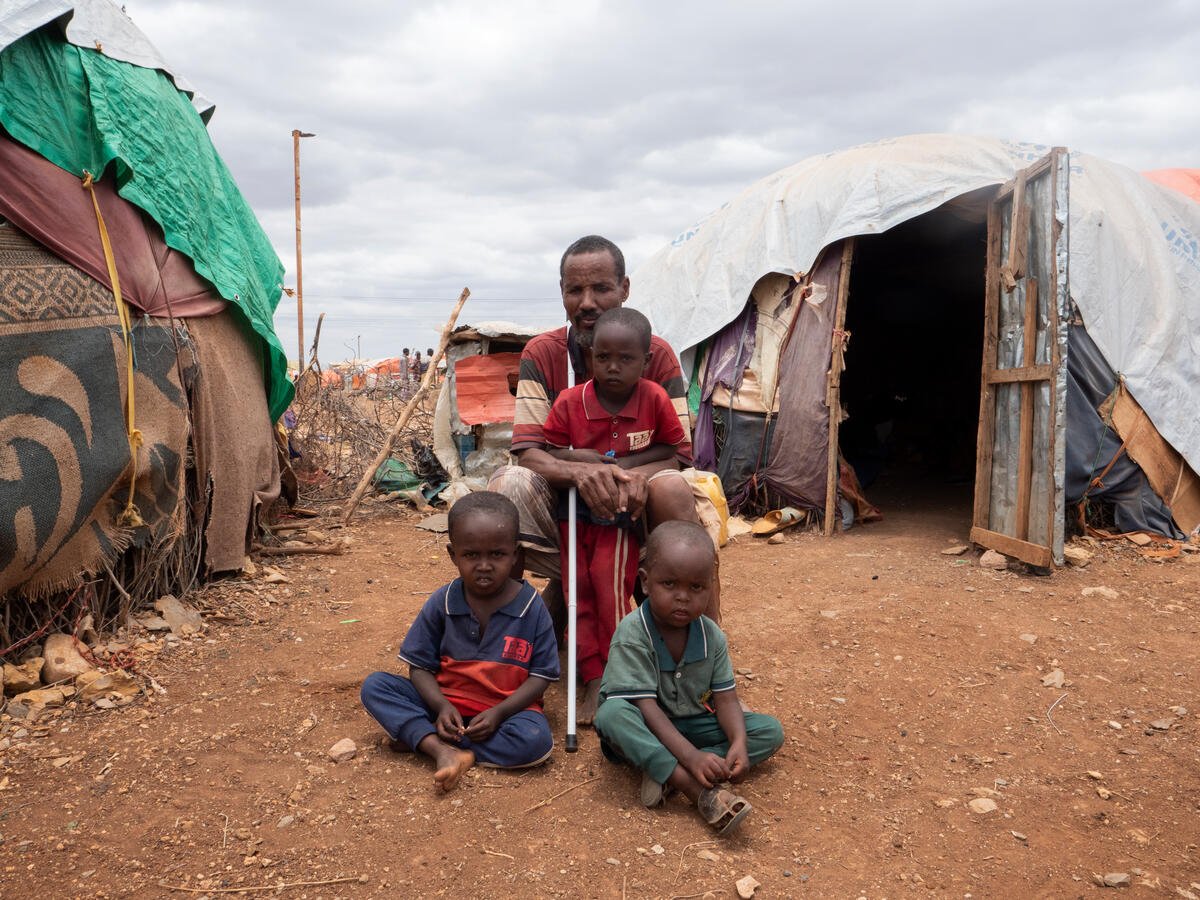Male rape and sexual torture widespread in Syria crisis – report
Male rape and sexual torture widespread in Syria crisis – report

Detained during the war in his native Syria, Tarek was held in a darkened cell for a month with 80 other people – but those harsh conditions were the least of it.
Kept naked, he and other detainees were strung up by their hands at night, tortured with electric shocks to their genitals and gang raped by their captors.
“They would come into the cell to violate us, but it was dark - we couldn’t see them. All we could hear were people saying, ‘Stop! Don’t! … I thought we would die,” he recalled.
Tarek’s experience is far from unique. A study published today by UNHCR, the UN Refugee Agency, indicates that sexual violence and torture of men and boys in Syria by multiple parties to the conflict may be far more widespread than previously thought.
UNHCR’s study involved several dozen informants and focus group discussions with some 196 refugees in Iraq, Lebanon and Jordan, mainly conducted in late 2016.
Those interviewed for the study provided shocking accounts of what they, or others known to them, had experienced. Reported forms of sexual violence included rape and mutilation of or shooting of genitals at point-blank range.
Much of this was reported as occurring in detention or makeshift prisons. UNHCR researchers heard accounts of violence against boys as young as 10, and against men including those in their 80s.
“My friend works with a 60-year-old man who refuses to give him wages until he does a sexual favour.”
It revealed that the risk of sexual violence is greater for those who – like Tarek – are gay, bisexual, transgender or intersex, and does not end when people leave Syria. Inside Syria, armed groups were reported as the main perpetrators, while outside Syria, the danger is often from opportunistic abuse.
Refugee boys in countries of asylum suffer sexual violence at the hands of other male refugees and from males in the local community.
Sexual exploitation and blackmail of refugee males in countries of asylum was reported, especially among those working in the informal economy, where the vast majority of their families live below the poverty line.
“My friend works with a 60-year-old man who refuses to give him wages until he does a sexual favour,” says Ibrahim, a Syrian refugee in Lebanon. “My friend cannot leave the job because he needs it for rent and to support his family. He is 30 years old, married and has a family, but he cannot talk to them about this.”
Among boys in countries of asylum, one respondent described sexual violence often by older youths, as happening “on a daily basis.” The report quotes a legal aid officer as saying the problem is often referred to as “bullying,” but that later it would be found out that sexual acts such as rape were involved. Many boys drop out of school.
“These are most disturbing accounts revealing just how grave the risk of sexual violence has become both for women and girls and, as shown by this recent report, also men and boys,” said Volker Türk, UNHCR’s Assistant High Commissioner for Protection.
"We are faced with a vicious cycle here of little help being available ... and a culture of silence."
“And it’s clear too that we are faced with a vicious cycle here of little help being available, limited outreach to male survivors, inaccessible services, and a culture of silence – all of which reinforce a myth that this problem is rare,” he added.
UNHCR’s report was undertaken with a view to expanding knowledge both of the nature and extent of the problem of sexual violence affecting refugee boys and men, and with a view to identifying good practices and other means of addressing the needs of victims of sexual violence.
It makes a number of recommendations geared towards humanitarian organizations and others involved in working with refugees. These include the need for stronger prevention strategies, better confidentiality arrangements, protection against reprisals, improved survivor care, and strengthened awareness among aid workers.
The report also recommends that further research be done with a view to providing more effective prevention and response to sexual violence against males in conflict and displacement – an ordeal which frequently leaves survivors with physical and emotional pain that can sometimes prove unendurable.
Ahmed, a refugee living in Lebanon, recounted how one of his uncles never recovered from the horrific abuse he endured while in detention in Syria.
“A few months after he was released, he told us – he broke down, crying in front of us – that there was not one spot on his body that had not been abused by an electric drill. He had been raped,” he said.
“After he was released he stopped eating and became alcoholic. He died from kidney failure.”









